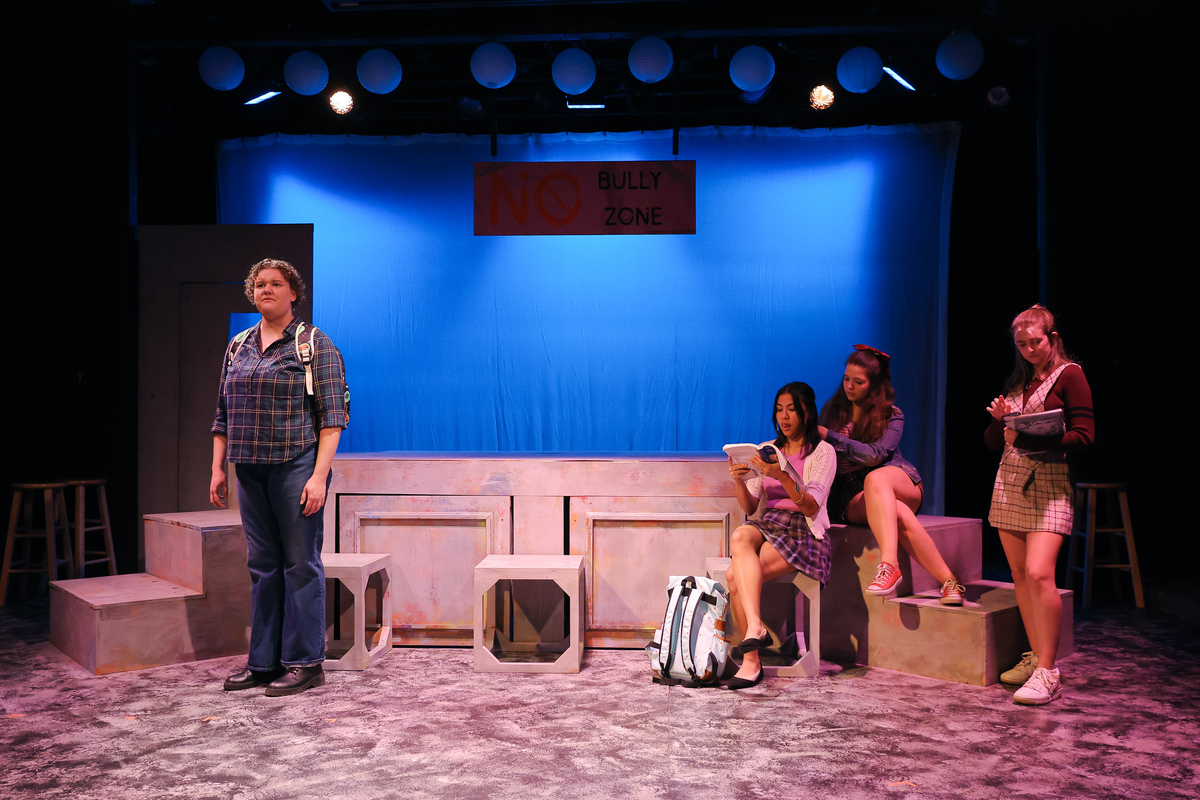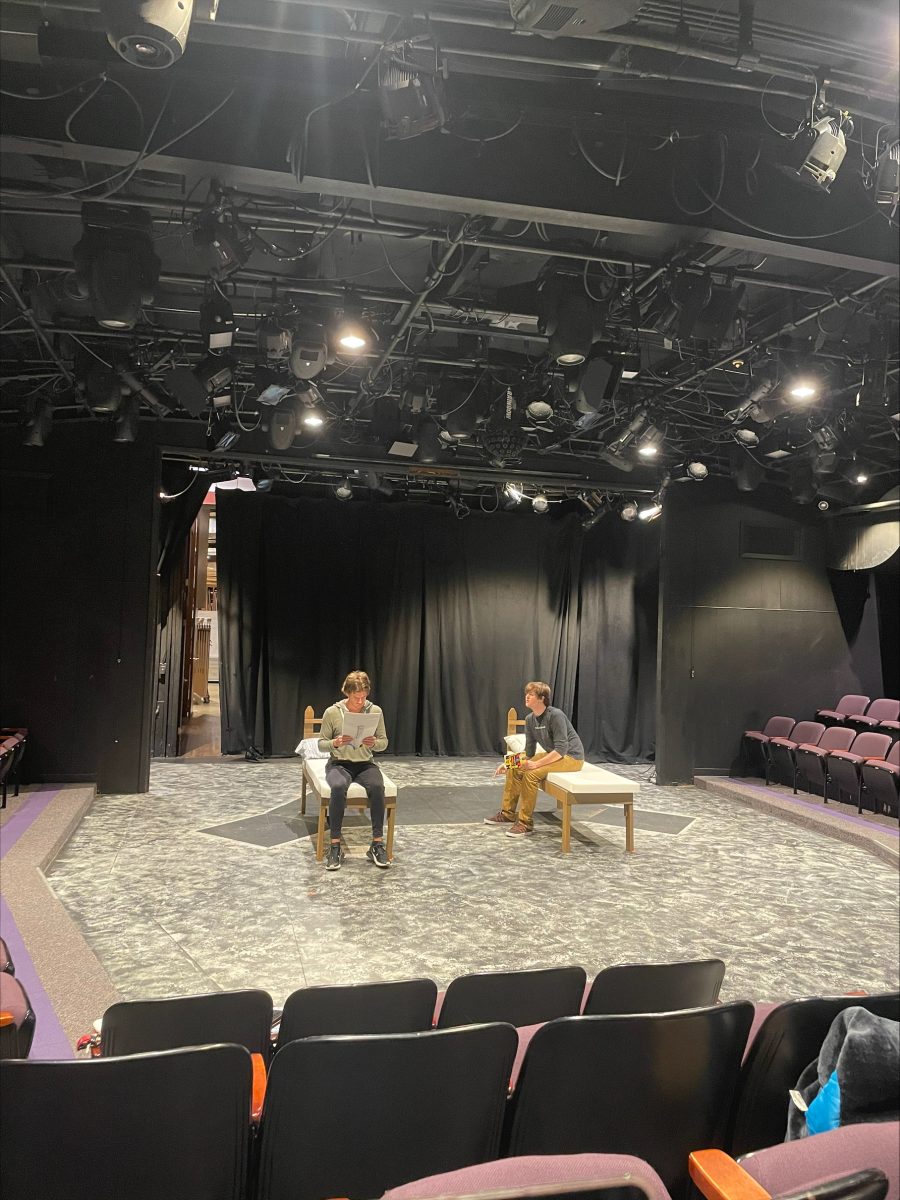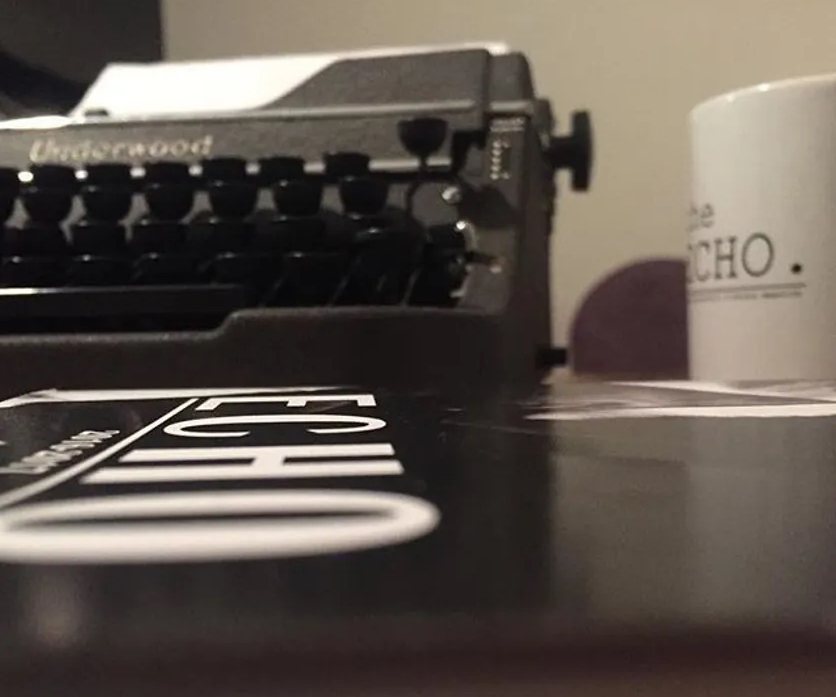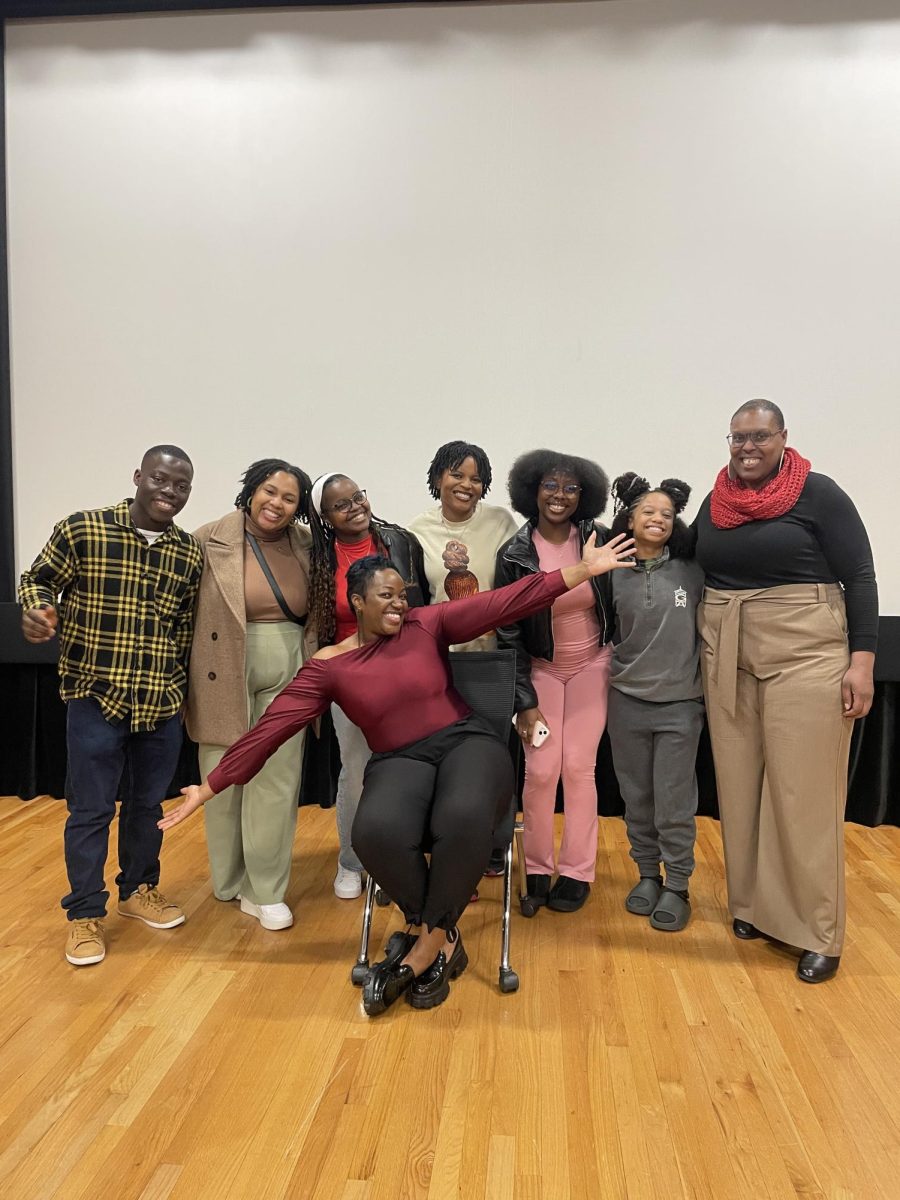Furman University Theatre debuted its first production of its 2023-2024, “The Prom,” on Oct. 4. Directed by Maegan Azar, this spunky, “zazz”-filled musical had a stunning 10-day run on the Main Stage, after which the audience had to say their goodbyes to compelling characters like Emma Nolan, played by Ash Tillman ‘24, Dee Dee Allen, played by Olivia Morett ‘25, Barry Glickman, played by Seth Jones ‘25, and Alyssa Greene, played by Casey Funderburk ‘24.
When the musical begins, Broadway stars Dee Dee Allen, and Barry Glickman, are celebrating the opening night of their new show “Eleanor!: The Eleanor Roosevelt Story.” Though at first their fictional show is met with rave reviews, a bad review from the New York Times has both divas desperate to rehabilitate their image.
Dee Dee, who plays Eleanor Roosevelt, and Barry, who plays her husband, President Franklin D. Roosevelt, have been lambasted for the insincerity of the show’s message, which is about activism and using one’s platform to promote a greater social good. To the critics, this central theme is not consistent with the self-serving politics of its leading man and woman.
Eager to show their naysayers that they are just as enamored with social justice as they are with the spotlight, Dee Dee and Barry go searching for a cause. They finally find Emma Nolan, a high school student from Edgewater, Indiana whose prom has been canceled due to her desire to take her girlfriend as her date. They resolve to travel all the way to Edgewater to give the “cow-tipping,”“cousin-humping,” “bible-thumping,” townspeople a piece of their minds.Emma seems to be the key to regaining their credibility.
Yet, they may have underestimated the opposition they were up against. Unwilling to throw an inclusive prom at the behest of the state’s attorney, the James Madison High School PTA moms cancel it altogether. Unfortunately for her, Emma, who was already the subject of social stigma due to her openness about her sexuality, becomes their unlucky scapegoat. Other students who blame her for the cancellation of their prom hang noose-necked teddy-bears on her locker, and if she is not openly taunted, she is the victim of vicious teenage gossip. All of this occurs against the ironic backdrop of a school hallway in which a sign that reads NO BULLY ZONE has been hung.
When Emma attends a PTA meeting to plead her case, matters are only made worse by the arrival of Dee Dee, Barry, and the rest of their merry band of musical misfits. Dee Dee accuses the PTA of being homophobic, and they find this allegation extremely offensive. Whatever strides Principal Hawkins and Emma had previously managed to make are completely forgotten, but at least the same cannot be said of the celebrities!
Unfortunately, this fiasco is just the tip of the iceberg. Dee Dee and her posse perform an ill-conceived anthem at a Monster Truck Halftime Show and push Emma to tell her story to an audience of 16 million on the Eddie Sharp Show.
Although “The Prom” pokes fun at performative activism, it also tiptoes around a more taboo facet of this issue that is not widely spoken of: performative allyship. What makes this musical so striking is that it highlights the cognitive dissonance that many of us experience when we are presented with allyship in our day to day lives. Even though much of what we see is typically steeped in good intention, occasionally, we get the surreal sense that there is an emptiness behind the emphatic exterior of ally culture.
So, how do we differentiate between allyship that is sincere and allyship that is performative? According to senior Ash Tillman, who plays Emma Nolan in “The Prom” and serves as the president of the Furman Pride Alliance, “listening to queer people and raising their voices when it comes to queer issues is the best thing you can do as an ally. Actually listening to LGBTQIA+ voices, which many of the characters in the show were not good at, is the only way to know what we as a community need from allies.”
Tillman’s words ring true in FPA’s involvement with “The Prom.” FPA collaborated with Katie McDaniel ’26, lead dramaturg, to recruit individuals on and off campus to the Dramaturg in Action sessions, which were 30-minute Q&As that allowed the musical’s company to hear from speakers who had experiences with the LGBTQ community and queer theatre.
FPA also lent their support by tabling in front of the Furman Playhouse Theatre, where “The Prom” was put on. As Tillman states, the intention was “to provide some visibility for the queer community at the show from the moment the audience walks up to The Playhouse…to make it clear that The Playhouse is a safe and inclusive space, and that we support shows like “The Prom” that tell a story that hits close to home for many of us.”
What Furman can learn from the FPA’s involvement with “The Prom” is that true allyship is not about speaking over the queer community. Instead, it is about creating a culture on campus in which allies are just as willing to hear as they are to be heard.










































